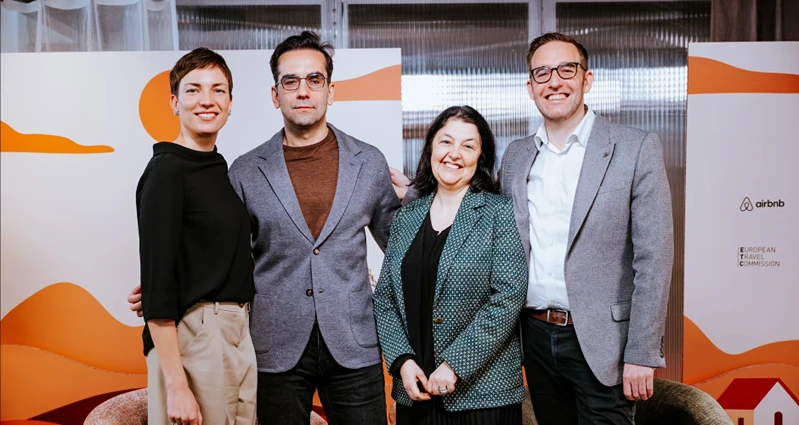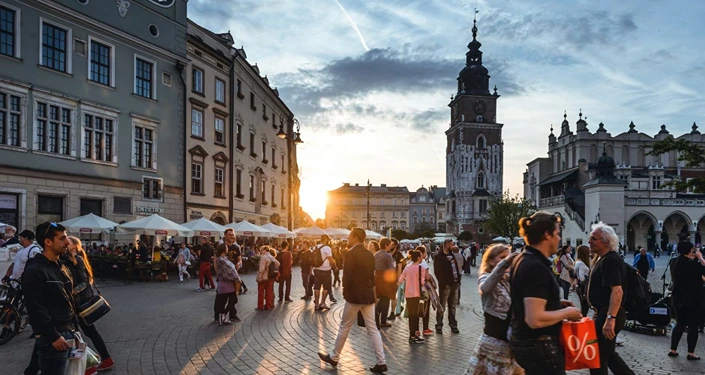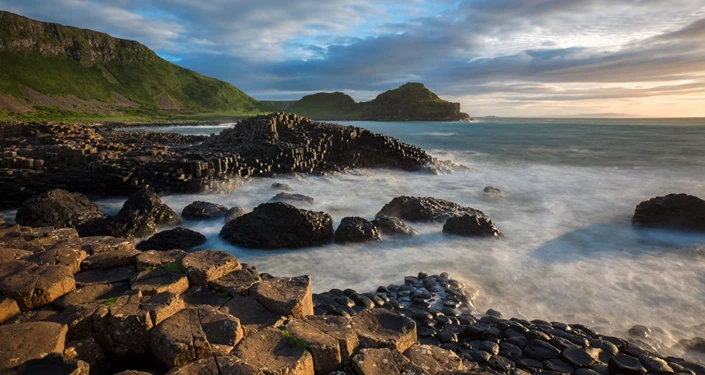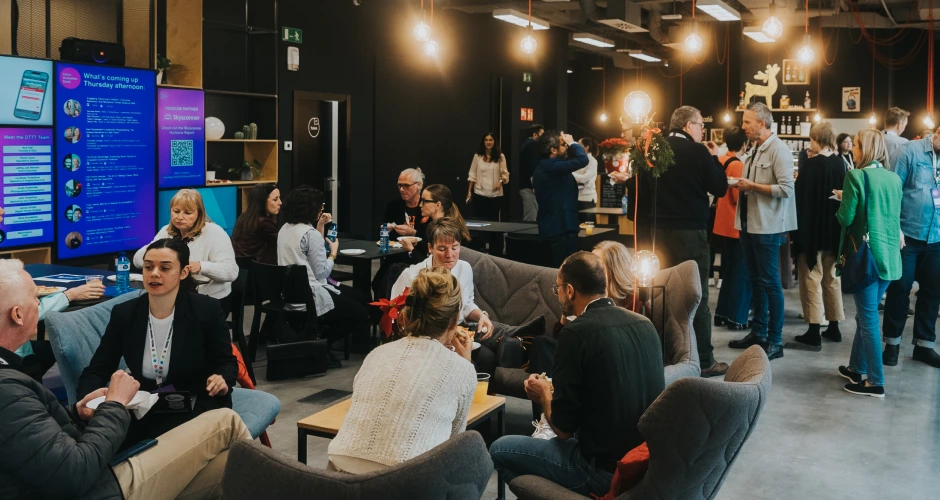The Meetings, Incentives, Conferences and Exhibitions (MICE) sector is transforming. In episode 1 of our "Backstage Leadership Conversations" podcast series, in collaboration with Abu Dhabi's Department of Culture and Tourism, we learn from Derar Almanaseer, Strategy and Sustainability Director at ADNEC Group, about the journey to achieving net zero events. This article explores ADNEC Group's strategic approach to achieving sustainability and how technological innovation and futures thinking are driving this change.
Having evolved from a governmental organisation to an investment-driven organisation managed by the Abu Dhabi Developmental Holding Company, ADNEC Group is a diverse business conglomerate encompassing seven key clusters. Its portfolio includes prominent venues, such as the Abu Dhabi National Exhibitions Centre and ExCeL London, alongside hotels, event management teams, catering services and media facilities. With 70-80% of its business revolving around tourism, ADNEC Group is a key driver of economic growth through both organic expansion and strategic acquisitions.
Sustainability in the MICE Sector
The events industry faces a unique challenge in balancing profitability with sustainability. On one hand, it's an asset-heavy business reliant on large venues that need to be filled by attendees to break-even. This model thrives on the social aspect of connecting people and providing engaging content. However, it also clashes with the growing focus on sustainability, where international travel to reach venues directly contributes towards climate change, with aviation representing 2% of global CO2 emissions in 2022. The shifting attitudes and values of business travellers place a renewed focus on designing event programmes that justify the need for in-person attendance.
Alongside the challenge of selecting the most appropriate content for event sessions, the size of large venues requires significant energy consumption and creates a high carbon footprint. Nevertheless, this scale also offers an opportunity. By implementing technological solutions, venues can leverage economies of scale to achieve significant emission reductions. Such an approach highlights a path to net zero without significantly modifying traditional business models.
The combination of these factors means that sustainability is a priority for event venues, not just a preference. Failing to prioritise sustainable practices exposes venues to several risks:
- Exclusion from bidding processes: Organisations with outdated environmental practices risk being marked down in competitive bidding processes, losing out on potentially lucrative contracts.
- Barriers to building new partnerships: Event organisers are increasingly environmentally conscious and seek to partner with venues that share their values.
- Financial penalties: The potential implementation of carbon taxes creates a financial incentive for reducing emissions.
ADNEC Group recognises that carbon offsetting, while valuable, is not the ultimate solution to mitigating the MICE sector's contribution towards climate change. Instead, it focuses on emission reduction at the source. Its commitment extends beyond events and venues, encompassing the entire organisation. This approach is part of ADNEC's ESG strategy, which is designed to convert potential risks into new opportunities, such as enhanced reputation, attracting top talent and access to green capital to fuel further growth and solidify its competitive edge.
Driving Change Through AI Systems
A critical first step in improving sustainability is measuring existing emissions and establishing a baseline. This process, adhering to international protocols such as the Greenhouse Gas Protocol, allows for targeted reduction strategies. For example, ADNEC Group measured its emissions footprint during a three-month process, revealing a group-wide total of approximately 90,000 tonnes of CO2 per year. This data provides a crucial foundation for its sustainability strategy. By delving deeper into the data, ADNEC identified that energy consumption in its venues accounts for roughly 52% of its total emissions. This pinpoints a key area for improvement, guiding the organisation's focus towards minimising energy usage.
ADNEC Group is tackling this challenge head-on, with technology as a key driver in the sustainability journey. Its partnership with Siemens to implement an AI-driven building management system for venues is a prime example, leading to significant emission reductions by carefully optimising energy consumption. This system is expected to significantly improve operational efficiency and generate a return on investment within just three years through reduced electricity bills, such as by minimising excessive use of air conditioning in venues. The clear impact of technology in driving cost-conscious and sustainable change empowers sustainability advocates to champion green initiatives and positions the topic at the centre of discussions among senior leaders, helping to highlight both the quantitative and qualitative benefits of leading the MICE sector's sustainable transition.
Importance of Futures Thinking
ADNEC Group recognises the importance of looking ahead and strategically planning for the future. The concept of mega-trend analysis plays a central role in this process by proactively identifying impending disruption. The early recognition of sustainability's growing importance, for example, allows ADNEC to better integrate sustainability principles into its DNA and overall value proposition.
By regularly analysing long-term trends, ADNEC Group can anticipate evolving needs and adapt to them accordingly, ensuring that employees are prepared for change. This foresight enables the development of a human capital roadmap, outlining training and development initiatives that will equip its employees with the necessary skills to thrive in an evolving industry. The importance of this forward-looking approach is underscored by the growing conversation surrounding the 'jobs of the future'. While some positions may become obsolete due to technological advancements and ongoing developments of AI models, new opportunities will emerge. Individuals who actively cultivate relevant skills, either through individual initiative or through organisational development programmes, will be best positioned to seize these opportunities.
While some companies may choose to adapt reactively to new requirements, laws or market pressures, those who actively embrace change will be better positioned. Staying ahead of the curve through continuous learning, developing new skills and anticipating future trends enables smoother transitions and ultimately leads to businesses remaining competitive and relevant long into the future.
Key Takeaways
The conversation around sustainability has dramatically shifted in the past decade. Previously seen as a peripheral concern, it's now a top priority for leadership teams. This change is driven by two key factors: ethics and economics. Technological advancements have made sustainable practices not just the right thing to do, but also a cost-effective way to optimise operations and reduce expenses. This empowers sustainability advocates to have a more persuasive voice, making the conversation about implementing sustainable practices significantly easier.
Here are the key takeaways:
- The future belongs to those who are prepared to adapt and innovate. Proactively identifying trends, such as the growing importance of sustainability, allows organisations to adapt and thrive in a changing landscape.
- Continuous learning and upskilling are essential to navigating the evolving MICE sector and empowering the workforce for impending change.
- Sustainability is a core business principle that should be integrated into an organisation's DNA. Organisations that prioritise sustainable practices will be better positioned to win contracts, attract new clients and secure investments.
- Technological advancements, including AI-powered management systems, offer significant cost savings alongside environmental benefits.






.svg)





.webp)










.webp)
